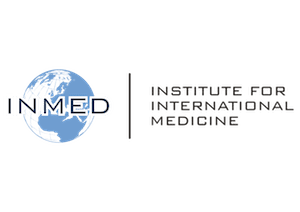Forum Replies Created
-
AuthorPosts
-
July 24, 2024 at 8:37 pm in reply to: International Healthcare Ethics Week 7 Discussion Forum #63770
 Scott ArmisteadParticipant
Scott ArmisteadParticipantAlexis, thanks for your thoughts shared. I think it is significant that you seem to get back to “the good” and the need to have a clear view of “the good” in one’s mind. You seem to come at from the angle of seeing within the “greatest number” for whom the “greatest good” is to be done even those who don’t have a voice to be counted among that number. Even your warning about dutiful doing without a clear view of the ultimate good is wise. Physicians compliant with the Nazi regime thought themselves dutiful when destroying the perceived inferior and weak. It sounds like something with which Pellegrino would resonate.
July 24, 2024 at 8:28 pm in reply to: International Healthcare Ethics Week 7 Discussion Forum #63769 Scott ArmisteadParticipant
Scott ArmisteadParticipantKainey, thanks for your input. The example of China is interesting in that utilitarian interests and ethics eclipsed other forms. What surprises me in the present debate about abortion in the US, for instance, is how little attention is given to the moral status of the foetus or the virtue of the professional as one who “does not kill” – the issue seems nearly entirely eclipsed by the language of “reproductive rights”. I suppose that in China the forced one-child policy had perceived economic interests eclipsing that of rights, perceived individual natural duties (to procreate) and any inclination to think of what was “good” beyond the will of the state.
July 24, 2024 at 8:25 pm in reply to: International Healthcare Ethics Week 7 Discussion Forum #63768 Scott ArmisteadParticipant
Scott ArmisteadParticipantRubel, thanks for your thoughts shared. It is interesting that you mention how commercialization forms our outlooks, theories and definitions of competence. When one thinks about the professional and moral formation of health care workers, it is interesting to think of market forces becoming more dominant as other ethical considerations are perhaps eclipsed by these forces. Market forces are hardly mentioned in B&C, but I suspect they might be more shamelessly presented in the US as the view of the individual as predominantly consumer and rights-holder gain ground and virtue ethics recedes further into a past historical perspective .
July 24, 2024 at 8:13 pm in reply to: International Healthcare Ethics Week 7 Discussion Forum #63767 Scott ArmisteadParticipant
Scott ArmisteadParticipantThanks for your thoughts shared, Sarah. It is interesting to read your reflections on the seasons of your education and which theories were emphasized during which seasons. I especially found intriguing your bringing up burn-out. It has been clear from various studies that “moral injury” is a significant factors in health care professional burnout, but I don’t think there has been an adequate evaluation of how culturally dominant ethical systems contribute to it. One would think that duty-driven ethical systems (which one would think would be prevalent in Islamic contexts) might produce a different sort of professional than virtue-driven ethical systems, which might be more dominant in Christian formation. Interesting stuff!
 Scott ArmisteadParticipant
Scott ArmisteadParticipantAustin, thanks for your comments shared. I appreciated your mentioning of the aspect of kindness you experienced in your teachers in Cuba. I think that in many LMICs, partly because of the massive load of patients and partly because of a lack of cultural understanding of the dignity of all people, the poor especially are rushed through with often sharp words. I found that in Pakistan women would try to explain their multiplicity of complaints in 30 seconds – all because they didn’t think I would take the time to listen to them. I would stop them, smilingly look them in the eye and explain that we would deal with one complaint at a time in an organized way. I didn’t see as many patients as other physicians but I hope I was able to share some kindness.
 Scott ArmisteadParticipant
Scott ArmisteadParticipantVincent, thanks for your thoughts shared. I particularly liked your mention of limited faculty development. My last five or so years in Pakistan I did a lot of teaching on the wards and in the clinic. During those years, there was no internet, so my opportunities for learning were entirely dependent upon my reading or learning from my immediate colleagues. When someone came from the outside world, we always had them teach as it was such a special thing to have a live teacher! When it came to teaching, I had the examples of my own teachers from decades before. It was really a paucity of instruction and feedback. From one working in an LMIC, I resonate with your observation.
 Scott ArmisteadParticipant
Scott ArmisteadParticipantBethany, thanks for your responses. I appreciate the fact that you mentioned simplicity. When I was in Pakistan in April I went with a neurologist friend who presented in various medical schools on neurolocalization. I found myself wishing I had someone like her teach me when I was in medical school/residency. The Pakistani medical students appreciated it also! She was simple, systematic and repeated the main points multiple times so that I left with the main points clear in my thinking.
 Scott ArmisteadParticipant
Scott ArmisteadParticipantGracie, thanks for your responses. I appreciated you mentioning the idea of “activating the learner”. The dominant form of learning in my experience in Asia was that of memorization, and it amazed me how national physicians were excellent at it! The dominant form of teaching was that of lecturing and, because of the near reverence held for those who are teachers, students would listen attentively. BUT, they seemed rarely activated. Thus, it seemed that critical thinking and clinical reasoning on complex scenarios was quite weak.
 Scott ArmisteadParticipant
Scott ArmisteadParticipantRonisha, thanks for your thoughts. You mentioned both a lack of finances and a lack of qualified faculty. I found that both in Pakistan and in Zimbabwe, the number of excellent doctors who immigrated to the West was quite significant. The “brain drain” of qualified people is no small thing in LMICs and the fact that countries such as the UK and US don’t train enough of their own and offer incentives for LMIC doctors (and nurses) to leave their countries of origin places a significant burden on LMIC educational institutions. Often these immigrating doctors come from countries where their education is paid for by the government as well, further exacerbating the problem. It’s complex!
 Scott ArmisteadParticipant
Scott ArmisteadParticipantJasmine, thanks you for your thoughts shared. I appreciated your mention of neo-colonialism and the importance of bidirectionality in learning. Having come back from many years in S. Asia, I found quite remarkable the cultural incompetency and lack of cultural humility in the medical education system, especially among progressive ideologues. I think American exceptionalism, American cultural and financial dominance in the world as well as being the heirs of a colonial world have led to this phenomenon and was encouraged that the writers of the article mentioned bidirectionality.
July 18, 2024 at 2:08 pm in reply to: International Healthcare Ethics Week 6 Discussion Forum #63676 Scott ArmisteadParticipant
Scott ArmisteadParticipantKainey, thanks for bringing up the issue of maternal mortality among African-American women. I like your thought that without issues of justice being addressed, then ethics in health care is incomplete. Your mention of both utilitarianism (which I think is a connected to American pragmatism) and libertarianism was evidenced in the response of the government and the population during the recent COVID pandemic. There was a push toward the greatest good for the greatest number universal vaccination and yet a push back by the population which didn’t like the heavy-handedness of the government (libertarianism).
The abortion issue globally is laden with difficulties and ironies, particularly as global organizations adopt the language of reproductive rights, often including that of termination of the developing human, as part of their agenda. More dialogue on what is the good seems so necessary. I find myself so distressed reading the Bloomberg Report on global health that comes out of Hopkins daily because the issue of moral status of the foetus is completely ignored and an assumption is that full abortion rights should be guaranteed globally. Where is talk of “the good”?July 18, 2024 at 1:54 pm in reply to: International Healthcare Ethics Week 6 Discussion Forum #63675 Scott ArmisteadParticipant
Scott ArmisteadParticipantShajin, thanks for pointing out, in your example of the government’s attempt to make generic meds available, the multiplicity of factors in looking at the ethics of that decision. It seems that utilitarian ethics are certainly at work in the national lunch program and in the health and wellness centers in poor communities, but that the health systems would secretively harvest the kidneys of unsuspecting patients for profit is certainly an example of violating the principles of respect for autonomy and of non-maleficence.
July 18, 2024 at 1:43 pm in reply to: International Healthcare Ethics Week 6 Discussion Forum #63674 Scott ArmisteadParticipant
Scott ArmisteadParticipantThanks, Alexis, for your comments. It seems as though you are eager for a justice rightly ordered in the scheme of prioritization, with beneficence/love at the core. I suppose it might be the difference from the slave’s emancipation as a matter of giving him/her full rights vs coming to a new place as a society in which as the abolitionist hymn write penned in “O Holy Night” – “chains shall He break for the slave is our brother, and in His name, all oppression shall cease”. The basis for justice is the affirmation of the God-given dignity of all as beloved of God and therefore beloved by us. Rubel said it well – “justice without the driving force of beneficence is a myth”!
July 18, 2024 at 1:35 pm in reply to: International Healthcare Ethics Week 6 Discussion Forum #63673 Scott ArmisteadParticipant
Scott ArmisteadParticipantSarah, thanks for your responses. I read of an uneasiness with seeing justice as the pivot on which bioethical considerations rest. It seems to me that justice in the US has insisted so stringently upon “rights language” which is important but has less moral weight, in my view, than the good. Rights language eclipses “the good” in it’s broad sense, and if we only see people as a bundle of rights instead of as those with whom we are together on a pathway to the good (though sometimes differently defined), our view is incomplete. Justice illuminated by a desire for the good is a different thing than justice insisting only upon my or others’ rights, which are mostly negative and, at least in the US, can lead to isolationism and a focus predominantly on the self.
July 18, 2024 at 1:23 pm in reply to: International Healthcare Ethics Week 6 Discussion Forum #63672 Scott ArmisteadParticipant
Scott ArmisteadParticipantSorry, Rubel. I have an Afghan friend named Rubab. It is a stringed instrument the Pathans use.
-
AuthorPosts
